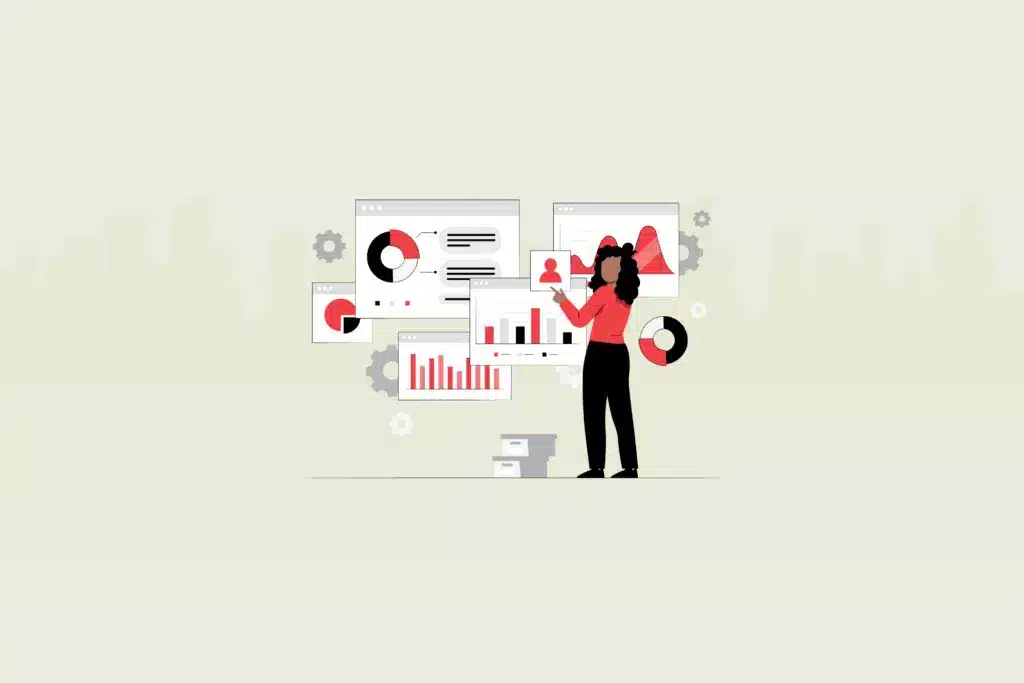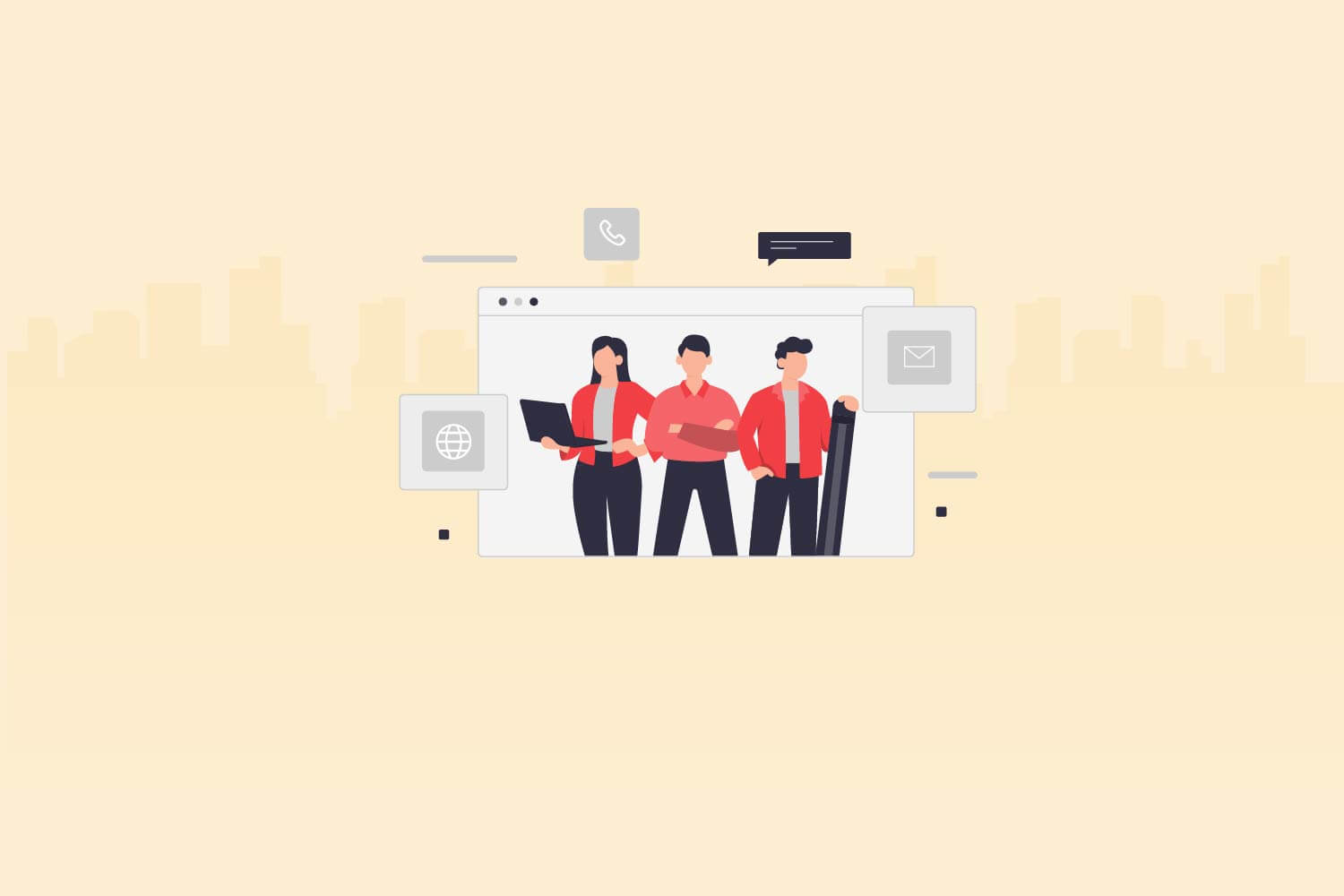Recruiters already using talent assessment platforms do understand that From traditional resume-based evaluations to cutting-edge data analytics and artificial intelligence, the methods used to identify and onboard talent have transformed significantly. And within a few more years it will completely change with newer integrations of VR and advanced AI.
This blog delves into the exciting realm of the future of talent assessment in the hiring process. We will explore how innovation, ethics, personalization, and a balance between technology and human intuition are shaping the way organizations uncover potential and make informed recruitment decisions.
Exploring the future of talent assessment
In a rapidly evolving job market where skills, roles, and expectations are constantly shifting, the traditional methods of assessing talent during the hiring process are also undergoing a significant transformation. As technology continues to advance and our understanding of human capabilities deepens, the future of talent assessment is poised for a revolution that promises to reshape the way organizations identify and onboard top-tier candidates.
Embracing data-driven insights
Gone are the days when hiring decisions were based solely on gut feelings and limited information. The future of talent assessment is firmly rooted in data-driven insights that provide a comprehensive view of a candidate’s potential. From analyzing social media behavior to utilizing AI-powered algorithms that sift through vast amounts of information, companies are harnessing the power of big data to uncover hidden talents and make more informed hiring choices.
Holistic candidate evaluation
While resumes remain a staple in the hiring process, the future of talent assessment transcends the boundaries of traditional CVs. Multidimensional evaluations are gaining ground, incorporating elements like skills assessments, behavioral simulations, and cognitive tests. By assessing candidates through various lenses, recruiters can gain a deeper understanding of their capabilities, work styles, and adaptability, ensuring a more accurate fit within the organization.
AI’s role in talent assessment
Artificial Intelligence (AI) is not only reshaping industries; it’s also revolutionizing how companies evaluate potential employees. Machine learning algorithms can now predict a candidate’s performance based on historical data and patterns. Chatbots and AI-driven interviews are becoming common, allowing organizations to engage with candidates in real time and assess their responses for both content and sentiment.
Ethics and bias mitigation
As we lean into the future of talent assessment, ethical considerations, and bias mitigation play an essential role. With technology playing a larger role in decision-making, there is a growing need to ensure fairness and transparency in the assessment process. Companies are working to eliminate algorithmic bias, promote diversity, and create assessment frameworks that uphold ethical standards.
Virtual reality and gamification
The future of talent assessment is as much about engagement as it is about evaluation. Virtual reality (VR) and gamification are emerging as tools to immerse candidates in realistic job scenarios, enabling recruiters to observe how candidates react and perform under pressure. These interactive experiences provide a more accurate representation of a candidate’s capabilities and suitability for a role.
Personalization and customization
One-size-fits-all assessments are giving way to personalized and customized evaluation approaches. Adaptive assessments that adjust the difficulty based on a candidate’s responses ensure a more accurate measurement of their skills and potential. This personalized touch not only enhances the assessment’s accuracy but also creates a more positive candidate experience.
Continuous assessment for lifelong learning
The future of talent assessment doesn’t end with the hiring process. As work environments continue to evolve, employees must adapt and upskill. Continuous assessment, integrated into professional development pathways, will enable employees to identify their strengths, areas for improvement, and growth opportunities, fostering a culture of lifelong learning.
Balancing technology with human intuition
While technology is at the forefront of revolutionizing talent assessment, the human touch remains indispensable. The future calls for a delicate balance between automated processes and human intuition. Building rapport, understanding cultural fit, and evaluating intangible qualities will continue to require the finesse that only human judgment can provide.
In this era of transformation, the future of talent assessment holds the promise of more accurate, fair, and efficient hiring processes. As organizations embrace these evolving methods, they pave the way for a workforce that is not only skilled but also aligned with their values, mission, and vision.
Navigating the evolving landscape of hiring through advanced talent assessment
In today’s dynamic job market, where innovation and adaptability reign supreme, the traditional reliance on resumes as the primary assessment tool for hiring is undergoing a paradigm shift. As the business world becomes increasingly complex, employers are recognizing the limitations of resume-based evaluations and are turning to advanced talent assessment methods that provide a more comprehensive and accurate understanding of candidates’ potential.
The resilience of resumes
While resumes have long been a cornerstone of the hiring process, their limitations are becoming more apparent. Resumes can only offer a glimpse into a candidate’s past experiences and skills, often missing out on critical insights into their soft skills, problem-solving abilities, and cultural fit within an organization. In the evolving landscape of hiring, a new approach is needed to unveil the true potential of candidates.
Unlocking hidden skills and potential
Advanced talent assessment methods go beyond the surface, tapping into hidden skills and potential that might not be immediately apparent on a resume. Skills assessments, cognitive tests, and psychometric evaluations provide a more well-rounded view of a candidate’s capabilities, enabling employers to make more informed decisions. By identifying candidates who possess transferable skills and a capacity for growth, organizations can build a workforce prepared for the challenges of the future.
Behavioral simulations and work samples
One way to navigate the evolving landscape of hiring is through the integration of behavioral simulations and work samples. These methods allow candidates to showcase their problem-solving abilities, decision-making skills, and creativity in real-world scenarios. By observing candidates in action, employers gain valuable insights into how they handle challenges and contribute to a team, providing a more accurate assessment of their potential contributions.
Gamification: Engaging and assessing
The incorporation of gamification in talent assessment introduces an element of engagement and interactivity. Gamified assessments not only make the evaluation process more enjoyable for candidates but also provide a platform to measure traits like adaptability, collaboration, and strategic thinking. This innovative approach creates an environment where candidates’ true abilities shine through, allowing employers to identify those who can excel in dynamic and ever-changing work environments.
Assessment centers in the digital age
Assessment centers, long used for evaluating candidates in group settings, are being reimagined for the digital age. Virtual assessment centers leverage technology to simulate collaborative tasks, presentations, and role-playing scenarios. This approach enables employers to assess teamwork, leadership potential, and communication skills, all while gaining a deeper understanding of how candidates interact with colleagues and handle complex situations.
AI-powered predictive analytics
Artificial Intelligence (AI) is revolutionizing the way employers approach talent assessment. By analyzing vast amounts of data from various sources, AI-powered tools can predict a candidate’s future performance and job fit. This proactive approach assists recruiters in identifying candidates who align with the organization’s goals and culture, minimizing the risk of hiring mismatched individuals.
Fairness, diversity, and inclusion
As we navigate the evolving landscape of talent assessment, addressing bias and promoting diversity and inclusion are paramount. Advanced assessment methods strive to eliminate unconscious biases by focusing on objective criteria and measurable outcomes. These methods ensure that candidates are evaluated based on their skills and potential rather than demographic characteristics, fostering a more inclusive and equitable hiring process.
Continuous learning and adaptation
The evolving landscape of hiring is characterized by its adaptability and continuous learning. Organizations must be willing to experiment with new assessment methods, analyze outcomes, and refine their approaches over time. By embracing a growth mindset and a willingness to innovate, companies can remain agile in their talent assessment strategies and stay ahead in the competitive job market.
The role of AI in shaping the future of talent assessment
In the rapidly evolving landscape of talent assessment, data-driven decisions are emerging as a transformative force, powered by the remarkable capabilities of Artificial Intelligence (AI). AI’s role in shaping the future of talent assessment is not just about efficiency; it’s about unlocking insights that were once hidden beneath the surface.
AI’s ability to analyze vast amounts of data, from candidates’ online presence to their responses in assessments, offers a more nuanced understanding of their skills, behaviors, and potential. This data-driven approach minimizes the reliance on traditional, often biased, methods of evaluation, enabling recruiters to make informed choices that align with an organization’s unique needs and culture.
Machine learning algorithms go beyond routine analysis; they identify patterns that predict a candidate’s suitability for specific roles, forecasting their potential contributions and performance. By reducing human biases and allowing for a broader perspective, AI ensures a fairer and more objective evaluation process.
Moreover, AI streamlines administrative tasks, freeing up recruiters to focus on meaningful engagement and connection with candidates. Automated workflows expedite initial screenings, scheduling, and communication, enhancing the overall candidate experience.
As AI continues to evolve, its collaboration with human expertise will be crucial. While data-driven insights lay the foundation, the human touch of understanding nuances, gauging cultural fit, and assessing qualities that go beyond data points remains invaluable. The future of talent assessment is an exciting blend of AI’s analytical prowess and human intuition, fostering a more accurate, efficient, and insightful hiring process.
Innovative approaches in assessing candidate potential
In the quest to uncover hidden dimensions of candidate potential, the realm of talent assessment is experiencing a fascinating shift – a transition from traditional psychometrics to the cutting-edge realm of neuroanalytics. This innovative trajectory delves deep into the human mind, unraveling insights that were once considered elusive.
While psychometric assessments have long been utilized to gauge cognitive abilities and personality traits, the advent of neuroanalytics takes assessment to a new level. By analyzing neurological responses, such as brainwave patterns and biometric reactions, employers can gain an unprecedented understanding of a candidate’s emotional intelligence, problem-solving skills, and even authenticity during interactions.
Neuroanalytics leverages advanced technologies like functional magnetic resonance imaging (fMRI) and electroencephalography (EEG) to map cognitive processes, revealing intricate cognitive functions and emotional responses that contribute to a candidate’s decision-making style and adaptability.
This approach isn’t just about efficiency; it’s about untangling the complexities of human behavior in a professional context. By integrating neuroscience with assessment, organizations gain insights into how candidates handle pressure, make ethical decisions, and navigate uncertainties – aspects that can profoundly influence their potential within the company.
As we journey from psychometrics to neuroanalytics, the future of talent assessment promises a deeper, multi-dimensional understanding of candidates, enabling employers to make more informed decisions and tailor roles that resonate with individual strengths. This paradigm shift marks an exciting era where science meets recruitment, reshaping the way organizations identify and nurture talent.
Transforming traditional interviews into engaging talent assessments
The landscape of talent assessments is undergoing a captivating transformation with the integration of gamification and virtual reality (VR), effectively breathing new life into traditional interview processes. This evolution is not just about assessment; it’s about creating immersive and engaging experiences that provide a holistic view of candidate capabilities.
Gamification injects an element of interactivity and excitement into assessments, turning mundane evaluations into dynamic challenges. By incorporating game-like elements such as puzzles, simulations, and timed tasks, recruiters can observe candidates’ problem-solving skills, adaptability, and strategic thinking in real-time scenarios. This approach not only captures candidates’ true abilities but also fosters a positive candidate experience, leaving a lasting impression regardless of the outcome.
On the other hand, VR opens a portal to immersive experiences that simulate real-world work environments. Through VR, candidates can showcase their skills in lifelike settings, such as handling complex machinery or participating in a virtual team project. Recruiters gain insights into how candidates react under pressure, collaborate with colleagues, and navigate challenges in a controlled yet realistic environment.
Together, gamification and VR are revolutionizing traditional interviews by providing a multifaceted understanding of candidates’ potential. By engaging candidates in novel ways, organizations can identify those who thrive in dynamic settings, exhibit creativity, and excel in teamwork – qualities that are often difficult to assess through conventional methods. As this transformative duo reshapes the assessment landscape, it heralds an era of recruitment where engagement, innovation, and accurate evaluation converge.
Ensuring fairness in future talent assessment methods
In the digital age of talent assessment, the crucial issue of ethics and bias has taken center stage, demanding a meticulous approach to ensure fairness and uphold integrity. As innovative methods like AI, machine learning, and data analytics shape the assessment landscape, there’s a growing awareness that these technologies can inadvertently perpetuate biases that exist in society.
To confront this challenge, organizations are investing in comprehensive strategies to mitigate bias at every stage of the assessment process. From the design of algorithms to the selection of evaluation criteria, transparency and diversity are key. Rigorous testing and constant refinement of algorithms help identify and rectify biases, fostering a more equitable evaluation environment.
Ethical considerations also extend to data privacy. As organizations gather and analyze vast amounts of candidate data, maintaining strict confidentiality and securing personal information are paramount. Candidates must trust that their data is handled responsibly and that the assessment process respects their rights.
Additionally, a proactive approach involves cultivating diverse talent pools and designing assessments that cater to a wide range of backgrounds and experiences. By embracing inclusive practices, organizations can ensure that assessments do not favor one group over another, promoting diversity and equal opportunities.
In the digital age, ensuring fairness in talent assessment is not just a moral imperative, but also a strategic one. Companies that prioritize ethical considerations and actively work to eliminate bias in their assessment methods not only enhance their reputation but also foster an environment of inclusivity that attracts and retains top talent. As technology continues to shape the landscape, ethical considerations must remain at the forefront, guiding the evolution of assessment practices toward a more equitable future.
How predictive analytics and machine learning are reshaping recruitment strategies
The realm of recruitment is undergoing a remarkable transformation as predictive analytics and machine learning forge a new path toward more effective and strategic hiring strategies. These advanced technologies are revolutionizing how organizations identify and nurture talent, making recruitment a proactive endeavor rather than a reactive one.
Predictive analytics harnesses historical data to forecast future outcomes, allowing recruiters to predict a candidate’s potential success within an organization. By analyzing patterns and correlations, this approach provides valuable insights into which candidates are more likely to excel in specific roles, aiding in the decision-making process.
Machine learning takes this a step further, continuously improving its predictions by learning from new data inputs. Algorithms can identify subtle trends and connections that human analysis might miss, leading to more accurate assessments of candidate fit and potential contributions.
This paradigm shift from relying solely on qualifications and experience to utilizing data-driven predictions has the potential to reshape recruitment strategies. Organizations can tailor their hiring approaches, allocate resources more efficiently, and focus on candidates who are genuinely aligned with their objectives and culture.
However, while predictive analytics and machine learning offer immense promise, human judgment and intuition remain crucial. These technologies should augment, rather than replace, the human element in recruitment. Striking a balance between data-driven insights and the nuances of personal interaction ensures that organizations harness the full potential of these tools while preserving the human touch in the hiring process.
In this age of transformation, the integration of predictive analytics and machine learning is enabling organizations to revolutionize their recruitment strategies, making informed decisions and building teams that are not only skilled but also poised for success.
Balancing automation with personal connection in talent assessment
In the rapidly advancing landscape of tech-driven talent assessment, maintaining the human touch has become a critical endeavor. As automation, AI, and data analytics shape modern hiring practices, striking a balance between technological efficiency and personalized connection emerges as a pivotal challenge.
While automation streamlines processes and expedites evaluations, the human touch remains essential for understanding the nuances that define a candidate beyond their qualifications. A personalized conversation during an interview can reveal soft skills, cultural fit, and passion – elements that are often overlooked in data-driven assessments.
Organizations must harness technology to augment, not replace, the human interaction in hiring. Automated initial screenings and standardized assessments can efficiently filter candidates, allowing recruiters to invest more time in building meaningful connections with potential hires. Video interviews, for instance, provide a glimpse into a candidate’s personality and communication style, while AI can analyze facial expressions and tone to gauge emotional intelligence.
Effective communication is equally vital. Keeping candidates informed about the hiring process and offering constructive feedback fosters transparency and respect. Additionally, involving employees from various teams in the assessment process not only adds diverse perspectives but also showcases the company’s collaborative culture.
In a world driven by data and algorithms, preserving the human touch in talent assessment nurtures trust, respect, and empathy. The amalgamation of technology and personal connection paves the way for a recruitment process that identifies not just candidates with the right skills but also those who align with the company’s values and vision.
Conclusion
As we peer into the future of talent assessment in the hiring process, one thing becomes clear: it’s a fusion of data-driven insights and human understanding. The tools and technologies available today empower us to evaluate candidates in ways that were once unimaginable, predicting success, uncovering hidden skills, and mitigating biases. Yet, as we embrace these advancements, the importance of preserving the human touch cannot be overstated.
Recruitment is not just about matching skills; it’s about building teams that thrive together. Striking a balance between automation and personal connection ensures that as we harness the power of technology, we also retain the empathy, intuition, and wisdom that only human judgment can provide. The future of talent assessment is an exciting journey, where innovation and compassion converge to create a workforce that is both capable and cohesive.
Testlify offers a range of assessments and challenges that allow you to gauge candidates’ knowledge, problem-solving skills, and creativity in real-world scenarios. With Testlify, you can administer real-world challenges that simulate the actual assessment process, giving candidates the opportunity to showcase their skills and approach. The platform provides a structured and standardized assessment process, allowing you to compare candidates objectively and make informed decisions. By incorporating Testlify into your hiring process, you can ensure a more comprehensive and reliable evaluation of candidates’, ultimately helping you identify the most qualified individuals for your team.
With our extensive test library, you can objectively evaluate candidates’ abilities, ensuring you shortlist the most talented individuals efficiently. Ready to unlock the potential of your hiring process? Book a free 30-minute live demo with Testlify. Our expert team will guide you through the platform, showcasing relevant skill tests tailored to your organization’s needs. With our support, you can streamline candidate selection, saving valuable time and resources.








